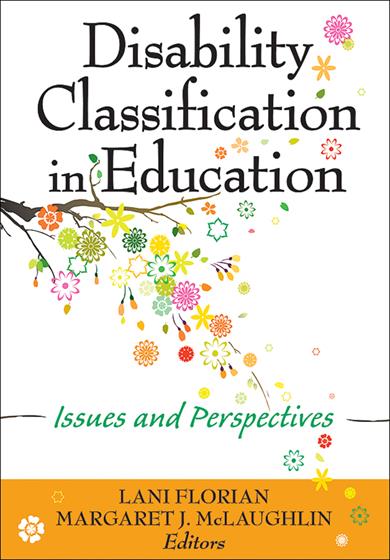Preface
Acknowledgments
About the Authors
Part I. International and Cross-National Contexts Within the Current Use of Disability Classification
1. Disability Classification in Education
The Purpose of the Book
Structure of the Book
2. Cross-National Comparisons of Special Education Classification Systems
Approaches to Develop Indicators Relevant to Special Needs Education
3. A Supply Side Approach for a Resource-Based Classification System
A Resource-Based Approach From a Comparative Perspective
A Resource-Based Approach for Policy Monitoring
4. Evolving Dilemmas About Categorization
Categorization in a Historical Perspective
Recent Conceptualizations of Categorization
5. Disability Classification, Categorization in Education: A US Perspective
Prior to 1975
The Hobbs Report
IDEA
6A. Implications for Human and Civil Rights Entitlements: Stigma, Stereotypes, and Civil Rights in Disability Classification Systems
Use of Classifications in Law
Diminishing Disability
6B. Implications for Human and Civil Rights Entitlements: Disability Classification Systems and the Law of Special Education
Applying IDEA Classifications
IDEA and the No Child Left Behind Act
New Contexts for Classification
7. The Classification of Pupils at the Educational Margins in Scotland: Shifting Categories and Frameworks
SEN Policy Frameworks
Policy Frameworks and Classification Systems
Policy Outcomes: Special Education and the Classification of Children in Scotland
The Impact of Disability Legislation in Scotland
The Education (Additional Support for Learning)(Scotland) Act 2004
Identifying Children With Additional Support Needs
Rights of Appeal, Adjudication, and Mediation
Inclusion and Additional Support for Learning
Part II. Interaction and Impacts of Classification Policies on Educational Systems
8. Perspectives and Purposes of Disability Classification Systems: Implications for Teachers and Curriculum and Pedagogy
Different Kinds of Classifications
Are Categories of Disabilities and Difficulties Used in Special Education Relevant to Teaching?
Implications for Classification of Special Educational Needs
Concluding Comments
9. Disability Classification and Teacher Education
Preparing Teachers by Disability Category
Beyond Disability Categories: Preparing All Teachers for a Standards-Driven System
10. Disproportionality in Special Education: A Transatlantic Phenomenon
Disproportionality in Special Education in the USA
Disproportionality in Special Education in England
Disproportionality in Two Countries
11. Classification of Children With Disabilities in the Context of Performance-Based Educational Reform? An Unintended Classification System
Background
Performance-Based Accountability: A New Classification System
Part III. New Approaches to the Classification Dilemma
12. International Classification of Functioning, Disability, and Health
Defining and Classifying Childhood Disability
Classification Problems in Education
The Dimensional Paradigm of Disability
Toward a Common Language of Disability in Special Education
13. Learning Disabilities in the United States: Operationalizing a Construct
14. Beyond the Dilemma of Difference: The Capability Approach on Disability and Special Educational Needs
Conceptualizing Differences in Education: Disability and Special Educational Needs
Reconceptualizing Disability: The Capability Approach
Beyond the Dilemma of Difference: The Capability Approach in Education
15. Concluding Thoughts: On Perspectives and Purposes of Disability Classification Systems in Education
References
Index



